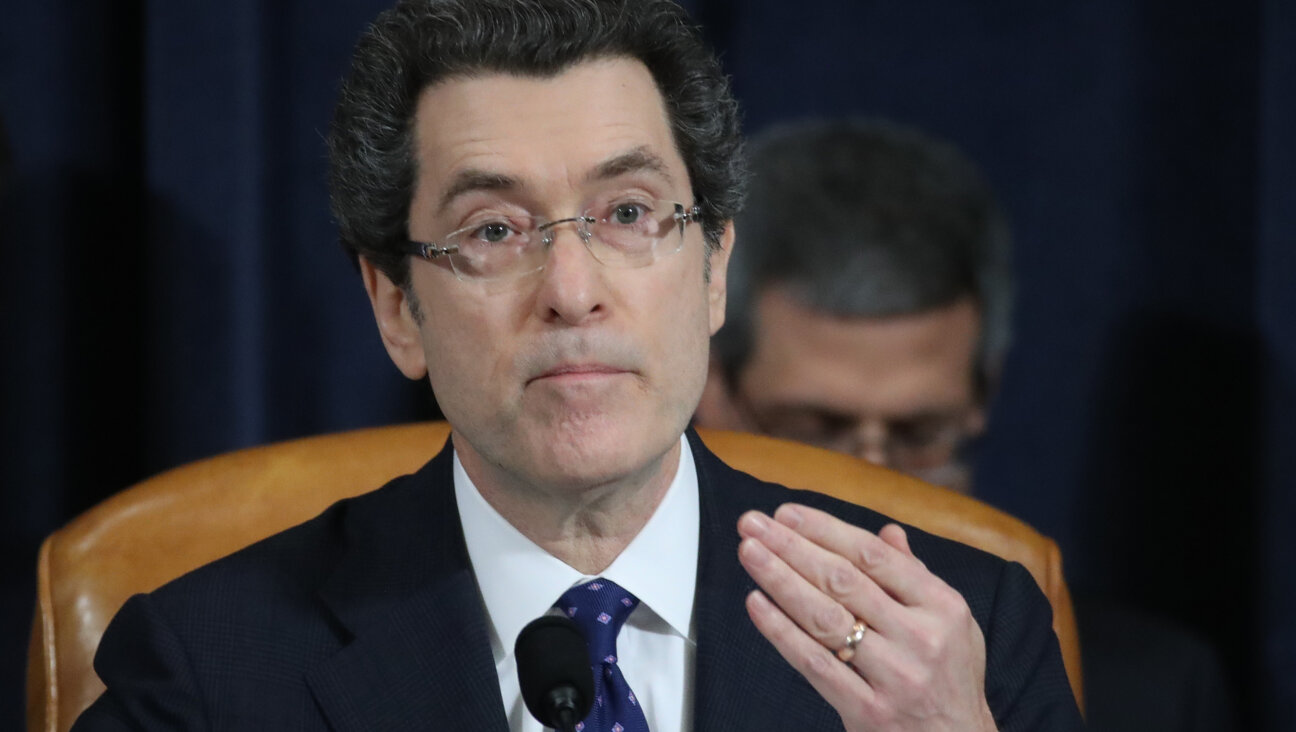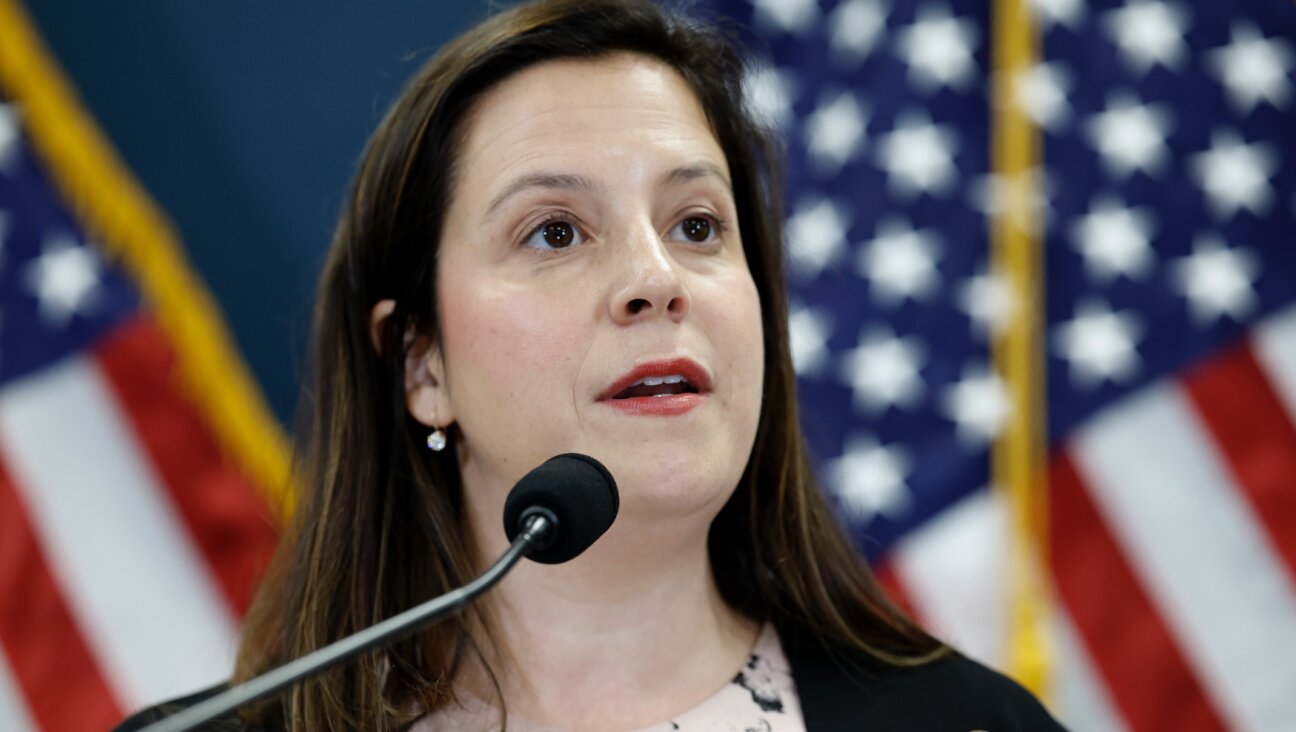Gaza Blockade Makes Recovery From War Impossible, Study Says

Image by Getty Images
Israel’s blockade of building materials for Gaza has created one of the highest levels of unemployment in the world and made it impossible for the small coastal enclave to recover from the war a year ago, aid agencies said on Wednesday.
Less than one percent of the materials needed for reconstruction have been allowed into the enclave, the international charity Christian Aid said.
Israel has blockaded Gaza, placing restrictions on people and goods leaving the enclave and goods entering it, since the Islamist group Hamas won power in Gaza in elections in 2006.
The blockade has isolated Gaza from the rest of the world, “helped to create some of the highest unemployment and aid dependency levels in the world, and must be brought to an end,” Christian Aid spokesman William Bell said in a statement.
Israel launched “Operation Protective Edge” on July 8, 2014 in response to rocket fire into Israel by militants in the Gaza Strip.
Israeli air strikes and shelling hammered the densely populated enclave for 50 days, causing widespread destruction of homes, schools and other buildings, and killing more than 2,100 Palestinians, mostly civilians.
Thousands of Gazans were made homeless, 100,000 homes were damaged and more than 12,000 destroyed, none of which have been rebuilt.
The aid agency Oxfam said Gaza’s economy was increasingly reliant on international aid, on which 80 percent of its 1.8 million residents depend.
Unemployment is among the highest in the world, with almost 68 percent of those under 24 jobless, it said.
The lack of opportunities is forcing a growing number of young people to risk their lives or arrest by trying to climb the border fence into Israel to look for work, Oxfam said.
The slow pace of reconstruction – estimated to take more than 70 years – means teenagers in Gaza will be old by the time it is completed, the agency said.
Israel put the number of its dead at 67 soldiers and six civilians.
The Forward is free to read, but it isn’t free to produce

I hope you appreciated this article. Before you go, I’d like to ask you to please support the Forward.
Now more than ever, American Jews need independent news they can trust, with reporting driven by truth, not ideology. We serve you, not any ideological agenda.
At a time when other newsrooms are closing or cutting back, the Forward has removed its paywall and invested additional resources to report on the ground from Israel and around the U.S. on the impact of the war, rising antisemitism and polarized discourse.
This is a great time to support independent Jewish journalism you rely on. Make a gift today!
— Rachel Fishman Feddersen, Publisher and CEO
Support our mission to tell the Jewish story fully and fairly.
Most Popular
- 1

Fast Forward Ye debuts ‘Heil Hitler’ music video that includes a sample of a Hitler speech
- 2

Opinion It looks like Israel totally underestimated Trump
- 3

Culture Cardinals are Catholic, not Jewish — so why do they all wear yarmulkes?
- 4

Fast Forward Student suspended for ‘F— the Jews’ video defends himself on antisemitic podcast
In Case You Missed It
-

Culture How one Jewish woman fought the Nazis — and helped found a new Italian republic
-

Opinion It looks like Israel totally underestimated Trump
-

Fast Forward Betar ‘almost exclusively triggered’ former student’s detention, judge says
-

Fast Forward ‘Honey, he’s had enough of you’: Trump’s Middle East moves increasingly appear to sideline Israel
-
Shop the Forward Store
100% of profits support our journalism
Republish This Story
Please read before republishing
We’re happy to make this story available to republish for free, unless it originated with JTA, Haaretz or another publication (as indicated on the article) and as long as you follow our guidelines.
You must comply with the following:
- Credit the Forward
- Retain our pixel
- Preserve our canonical link in Google search
- Add a noindex tag in Google search
See our full guidelines for more information, and this guide for detail about canonical URLs.
To republish, copy the HTML by clicking on the yellow button to the right; it includes our tracking pixel, all paragraph styles and hyperlinks, the author byline and credit to the Forward. It does not include images; to avoid copyright violations, you must add them manually, following our guidelines. Please email us at [email protected], subject line “republish,” with any questions or to let us know what stories you’re picking up.















